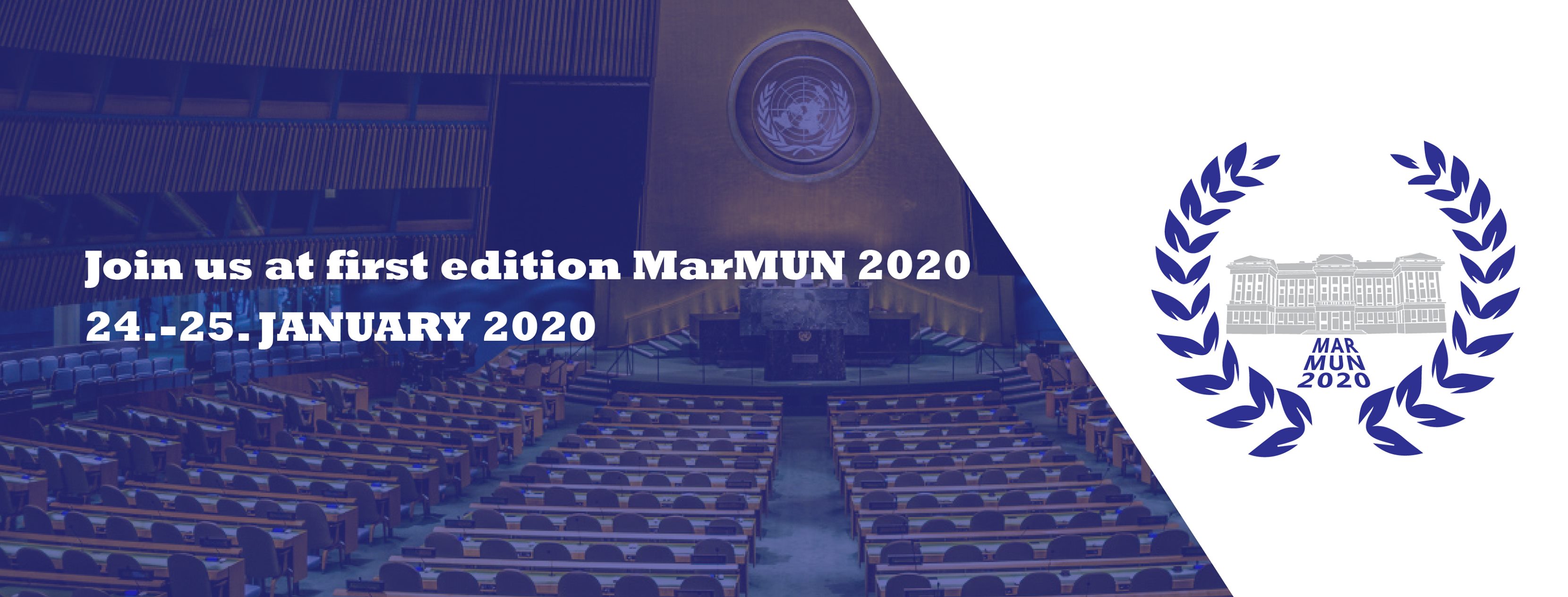
Since the opening of our high school in academic year 2013/2014, small groups of our students have been participating in Model United Nations (MUN) conferences, both in Slovakia and abroad.
An MUN is a simulation of the work of the real United Nations. Student delegates represent different countries and work with others to produce a resolution which will help solve a given problem. For example, we recently attended a conference in Torún, Poland. One of our five delegates represented France on the Human Rights Council (HRC). The council was attempting to resolve the issue of human trafficking.

Delegates have a lot of work to do before the conference begins. They must research their country, to ensure they know what kind of government it has, what values it has, who its allies are, and so on. Then they must understand the issue in depth. They must know where their country stands on the issue and develop a written policy statement (or position paper) which outlines this. They also need to know where other countries might stand on the issue, so that they start to see potential areas of conflict and opportunities for compromise.
At the conference itself, they negotiate with other delegates, during both informal discussions and formal debates, in order to produce the final resolution. An MUN has a language all of its own. It is English, but of a very formal kind. A delegate is not ‘I’ or ‘me’ but ‘the delegate of (say) France’. When (s)he wishes to speak, (s)he must be ‘given the floor’, and must ‘yield the floor’ back at the end of the speech. A question is not a question, but a ‘point of information’, ‘point of parliamentary enquiry’ or ‘point of personal privilege’.
Fortunately, since we all need to relax, there are also parties or other social gatherings in the evenings, where delegates can properly get to know (as real people) those they have been disagreeing with all day.
In these six and a bit years, our school has participated in 16 MUN conferences, as well as 3 Model European Parliament conferences, and the activity has provided a fine experience for those students who have shown the courage to have a go at it. However, only attending conferences organised by others puts certain limitations on us as a school; we cannot involve as many students as we would like, and we cannot offer anything to those who would like to contribute to the activity in other ways than as a delegate.
The first Martin Model United Nations (MarMUN 2020), to be held on January 24th and 25th, should address this and other issues. The organising team is led by two of our Year IV students, both of whom have experience of participating in other conferences. They have appointed students from our school and others to lead the commissions and councils, developed a budget, negotiated with the mayor of Martin so that we are allowed to use rooms belonging to the city, sent invitations to other schools (in Slovakia and abroad), and booked accommodation for visitors.
Other students are responsible for developing graphics for the conference, for dealing with the registration of delegates, producing materials, preparing drinks and snacks, and so on. There will also be a group of younger students whose job will be to act as guides and look after the visiting delegates.
We plan to have four UN organs at our conference; a Historical Security Council, which will return to the early 1990s and try to find solutions to the problems posed by the break-up of Yugoslavia, an Economic and Social Council, which is dealing with Venezuela’s problems, the Environment Programme, which will try to reverse damage to the marine environment, and the Futuristic Security Council, which will consider the possible rebirth of the Ottoman Empire.
All this is a major undertaking. However, we hope that it will help to strengthen us, as individuals and as a community, and to help us form friendships with students and teachers from elsewhere. The commitment and spirit shown already by large numbers of our students gives hope that we will succeed.
Mr. James Baxter



